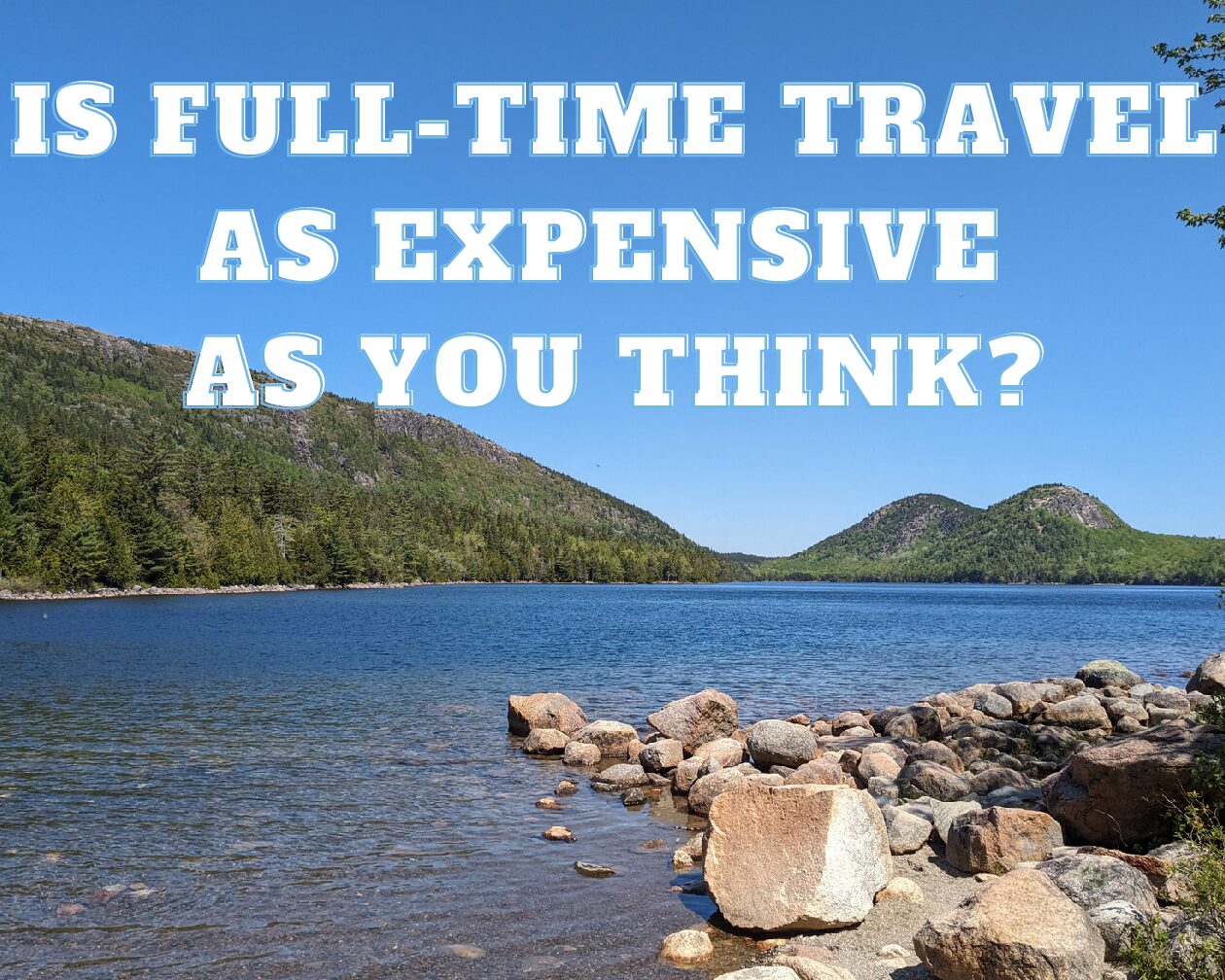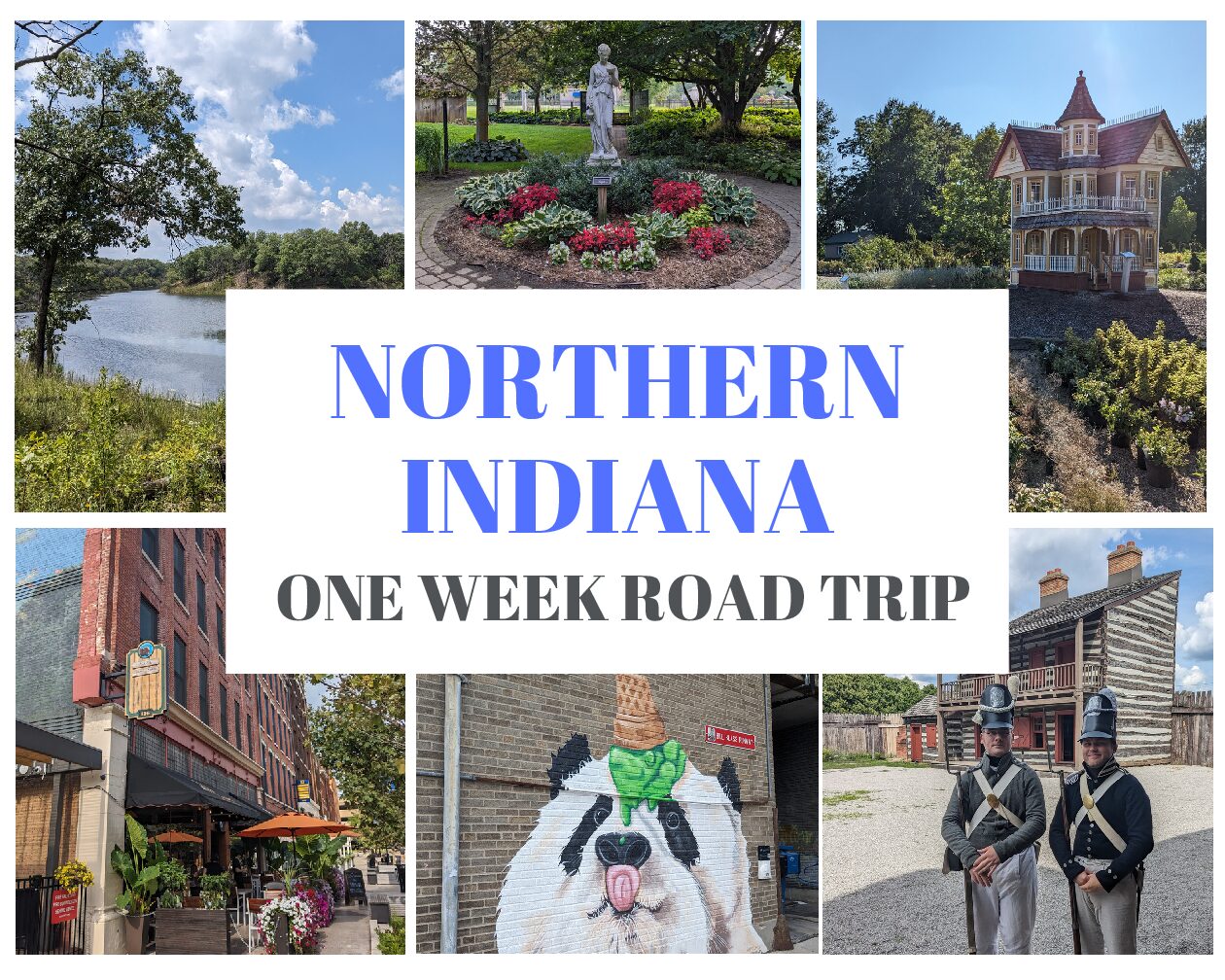
Is Full-Time Travel As Expensive As You Think?
After telling someone I travel full-time the first responses are always about how cool that is, if it is safe, and how expensive it must be. There are about five questions I am asked over and over again. One of the top five is “how do you afford to travel full-time”? I really want to ask everyone back “how do you afford NOT to travel full-time?”
Travel is very expensive, but so is buying a house, raising children, caring for pets, owning a car, paying monthly phone and utility bills, and having multiple streaming services and memberships. When you take out all those costs of a “traditional lifestyle” you can apply them all to travel and have a lower cost of living!
This post is for those of you who have asked me this question and everyone yet to come who is going to ask me. I will be directing people here so “hello” to those of you who found yourself here after asking me that! Also to anyone who is considering the lifestyle, here’s what to consider.
There are so many factors to think about when deciding if you want to travel full-time or not. The following information breaks down why full-time travel can actually be a lot cheaper than living in the US full-time and traveling often. Of course on the flip side there are many advantages to having a home base as well, but looking at the financial side of things you’ll see how you can actually come out ahead by being a full-time traveler!
Keep reading to see how full-time travel can be cheaper than a traditional lifestyle by……..
Is Full-Time Travel As Expensive As You Think?
Working a Remote Job

Most people equate travel with vacation. When they hear “travel” they are picturing lying around a Caribbean beach sipping a piña colada or rushing around to different museums and cathedrals in Europe.
To me and a lot of my fellow digital nomads travel is life. Unless someone is a retired or a very lucky full-time traveler we are working while traveling. It looks different for everyone. Some people are working for a company remotely at set hours. They can work from anywhere, but just need to be online at certain times. Other people are working for themselves and have no set hours. There is everything in between as well.
We might have a lot more interesting “offices”, but I promise you we do work! Thanks to Covid, a lot of people are doing the exact same jobs at the exact same salary, but just working from “home”. The only difference is that the most fearless of us choose “home” to change a lot more frequently!
Paying Less for Living Costs

While a lot of people either have the same salary and are just working remotely or have started their own businesses and grown their salaries, their home costs have gone down. The United States has one of the highest costs of living in the world.
For example I could rent an apartment for $1,500 in a US city and still have wifi and utility costs on top of that. There is also the initial expenses of furnishing the place. Not to mention recurring household costs such as toilet paper, paper towels, kleenex, trash bags, etc.
In another country I can rent a furnished apartment for $1,500, but it also includes the extra wifi and other utility costs. Many furnished places will have both household items and personal items included. I have stayed in furnished rentals where you can replenish your own toilet paper, kleenex, and personal bath products at no extra cost. Those extra savings add up.
That is for renting. If you are owning a home there are a whole slew of other costs involved. Whether you hire someone or buy the equipment to do it yourself, you have general maintenance, lawn care, and snow removal to consider. Of course there are property taxes and mortgage as well. Eventually there are remodeling or bigger maintenance costs.
Renting One Place at a Time

Most travelers with a home base still need to pay their rent or mortgage while traveling. Essentially their cost per night is their rent/mortgage and monthly utilities and expenses divided by 30/31. Plus their travel accommodation cost per night.
When you travel full-time your nightly cost is your only accommodation cost. If you take the cost of everything you pay per month for your home (rent/mortgage, wifi, utilities, lawn care, taxes, appliance maintenance, parking fees, etc) and compare it to a hotel or AirBnB you may be surprised how the costs compare. In some parts of the world you’ll be paying much less per night than what you pay in the US.
At the very least even if it is more per night at hotels, if you are traveling full-time you don’t have the other expenses. Now that I have experienced being a full-time traveler it’s hard for me to think of going back to renting/owning a place and paying for travel accommodations at the same time.
Using Your Vehicle as a Home

Continuing on from the idea above of only paying for one place, you can cut costs by having a home on wheels. RV and van life are very popular right now and offer a great balance of having your own home, avoiding hotel costs, and traveling the world.
Using Public Transportation & Your Own Two Feet

On the other hand if living out of a RV or van isn’t for you, you may not even need a vehicle. It costs around $10,000 a year to own a vehicle. Just think of how many hotel stays you can have with that much money? In the US you can find hotels for $150/night. That’s 66 nights a year!
In my post on how to save money in NYC I researched the average cost of owning a car versus taking public transportation. Based on the data I found it is about $1,524 to have a monthly MTA pass in NYC and $9,220 to own a car. Going by that data I would have saved $30,784 from the four years I lived there!!! The MTA passes have gone up in price since then and I am sure the cost of owning a car has as well.
Don’t think that NYC is the only place you can get by without a car! That’s the glory of full-time travel, you can choose where you want to go and pick out places with public transportation.
In general it’s very easy to travel without a car abroad and not as challenging as people in the US think. I have used public transit in at least 15 US cities in the last few years.
Traveling in Cheaper Destinations

What you spend in a month varies significantly on your destination and how you choose to travel. I’m not one to stay in hostels, but if you throw some of those into the mix you really can save a ton of money every year. In many areas of Eastern Europe, Latin America, Africa, and Asia accommodations are nice, but very cheap.
It was a little different as I was an expat in Russia and not a full-time traveler, but I was able to save so much money because the cost of living was very low. For example my phone bill was only about $8 a month.
One of the reasons I now travel in Latin America often is the cost of living. Street tacos in Mexico for less than $1 USD spoiled me for tacos in the US. Whitewater rafting might be $200 in the US, but only $60 in Puerto Varas, Chile. Buses usually are around $1.50 – $3 in the US, but in Latin America they are rarely over $1.
Change your coordinates and your money goes a lot farther!
Maximizing Credit Card Miles & Points

Most people who ask me about the cost of full-time travel actually aren’t interested in it. They can’t imagine not having a home base or traveling without a car. That’s why I usually skip all the reasons above and go right to miles & points. Having the best credit cards in your wallet is a way everyone can use to save money on travel whether you travel full-time or once a year.
Credit cards are advantageous to all travelers, but especially full-time travelers. I save thousands of dollars a year. I am not exaggerating at all! By diligently keeping track of all my redeemed points I know how much value I earned. That doesn’t even include all the other perks and offers. It’s a major reason why I am able to travel full-time.
I’m always shocked by how many people can’t figure out how to spend enough money to earn the welcome offer. Then I remember that a lot of people have expenses like mortgages and rent that can’t be paid on most credit cards.
You know what goes on credit cards? Every single travel expense! The more you use your credit cards, the more points you earn to redeem for free travel. Redemption rates are also higher for certain expenses like travel and dining out. So not only am I earning points for 99.9% of my expenses, the majority of those I’m earning 3x, 5x, or 10x points because they are travel related.
There are very few expenses I don’t put on a credit card. That means I am earning a lot of points and constantly redeeming them for free stays. I’m also able to take advantage of the perks and offers that come with the cards. The Chase Sapphire Reserve® Card is one of my favorite cards. My full Chase Sapphire review breaks down how much I saved in my first year using the card.
Whether you travel once a year or full-time, get yourself a good credit card! Subscribe to the Daily Drop to stay up to date on the miles and points world. Fill out my credit card questionnaire to receive free credit card recommendations personalized to your travel wants and needs!
Having a Flexible Travel Schedule

As a teacher I was blessed with a lot more time off than most professionals, but it was always at peak travel times. That means peak prices.
When you travel full-time you can choose when to go and where. There is so much freedom in not being tied down to a place or your boss’s schedule. As a former teacher I’m now a huge fan of traveling when students are in school. I’m also able to travel in the shoulder season for all my destinations when prices are lower.
I have seen hotel prices in the same city double from one date to another. On my North GA road-trip one of the hotel’s was about $50 a night cheaper during the week when we stayed versus what it was on the following weekend.
Not only can you choose where to go when, but also choose what days to do activities or go out to eat. Many times attractions have a cheaper weekday pricing and restaurants have deals during the week.
Making Use of Local Discounts

When you only have one week to spend at your destination you don’t have a lot of leeway to plan your itinerary. You also often don’t have the time to spend waiting in lines for discounts or even researching discounts.
I love spending at least a month or two in destinations so I really get to know the place and live more like a local. The financial benefit of that is being able to take advantage of discounts. Here are a few I typically seek out:
- Libraries: Not only can you read books for free, but many libraries also have free activity passes. In Atlanta I visited a lot of fun places for free like Zoo Atlanta & the Center for Puppetry Arts thanks to the free partnership passes. You’ll need a local connection that has a library card or be able to get one yourself though. Libraries often have free events open to the public as well.
- Free Museum/Attraction Days: Many places often have at least 1 free day a month. If you have enough time in a place you can coordinate your schedule to make sure to go to all the places on free days.
- Discount Tickets: Whenever I go to NYC I attend several Broadway shows, but rarely spend more than $70 a show. I often score tickets for less than $50 as I have time and flexibility to get discount tickets.
Having a Support Network

This one I am hesitant to share because people assume that someone is a trust fund kid or their parents are paying all their expenses. For the majority of the other full-time travelers I have met and myself, this is not the case at all!
That doesn’t mean that we don’t get any support! I’m so grateful for the many acquaintances, friends, and family who have been supportive of my journey. While no-one is paying all my expenses, friends and family have let me stay with them when I’m visiting, my mom lets me use her home to store my belongings, my parents will take me out to eat, friends have given me rides many times, and relatives will send me some cash over the holidays.
It’s only fair that I give a big shout-out to the people who have made a difference in making this lifestyle sustainable on the financial side. Whether someone loaned me some books one time or they let me stay with them for a month, I’m grateful to you!
I’m also leery of sharing this last point as it makes some people think they can’t travel full-time if they don’t have a support network. While I can’t speak to that experience personally and thankful I can’t, it’s hard to imagine that living a traditional life would be any easier without a support network. I’ve met single parents without family nearby and there is no doubt that is a challenge! Life can be challenging, so you might as well be traveling full-time!
These are only the financial benefits of full-time travel. I could write another long post on the benefits of full-time travel in general.
Pin It!!






